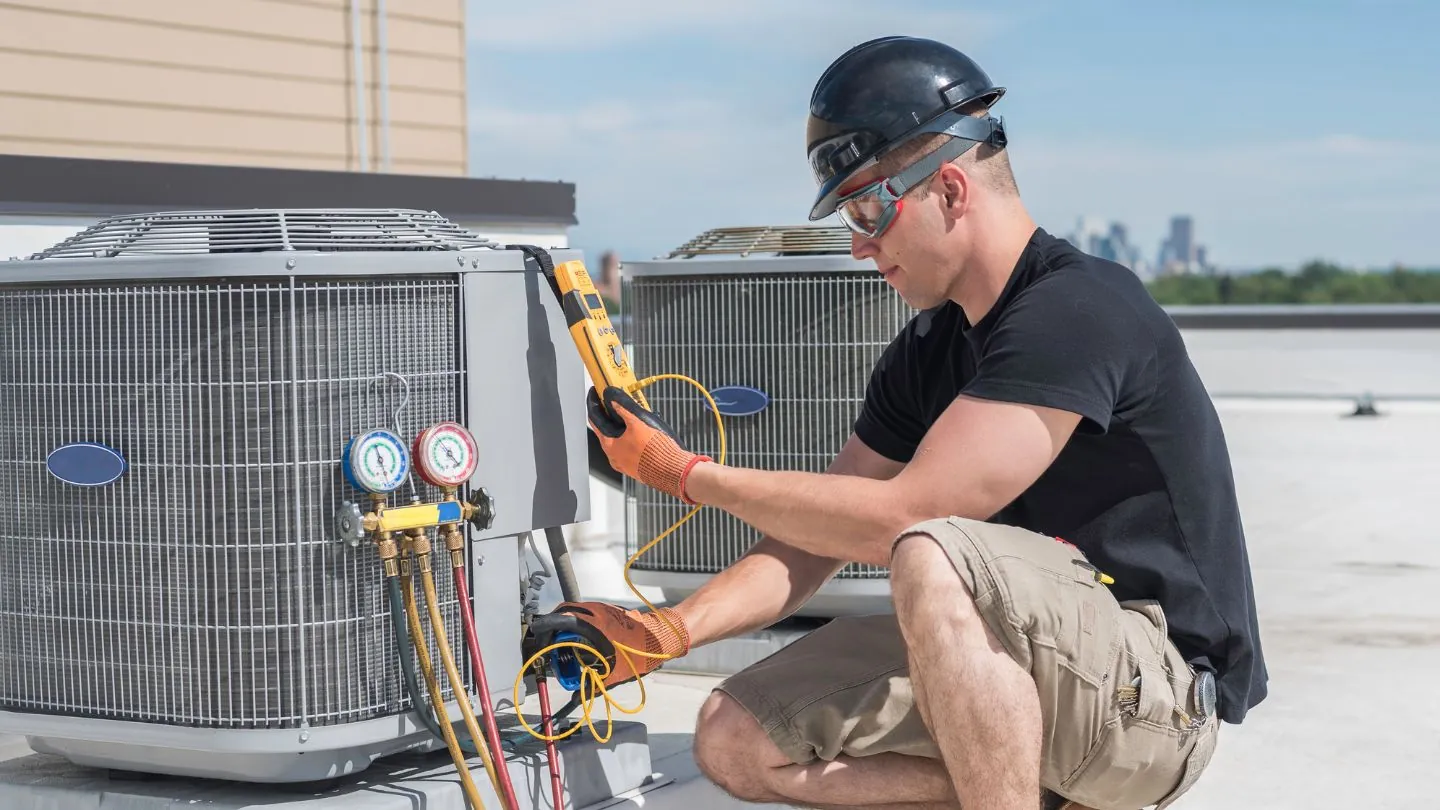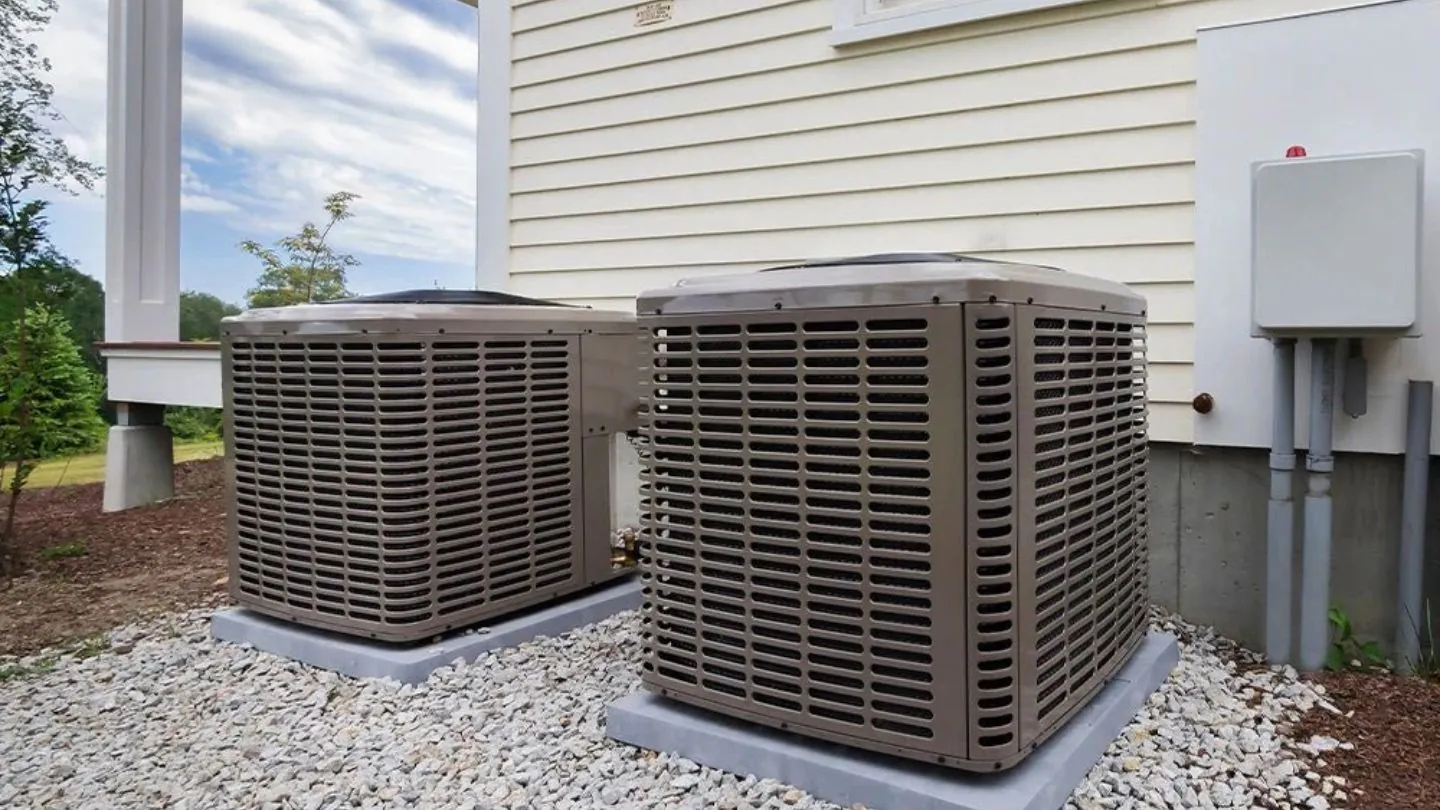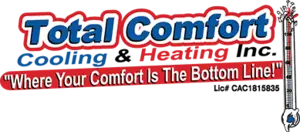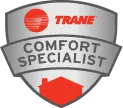Can HVAC Systems Help Reduce Allergies and Asthma Symptoms?
Breathe easier with HVAC systems that tackle allergies and asthma head-on. Advanced air filters trap dust, pollen, and pet dander, while precise humidity control curbs mold and dust mites’ growth. Adding proper ventilation ensures fresh, clean air circulates throughout your home. Discover through this blog how these features create a healthier space for you and your family.
Key Takeaways
- HVAC systems significantly improve indoor air quality by effectively filtering allergens and maintaining optimal humidity levels, essential for individuals with allergies and asthma.
- Regular maintenance and timely filter changes are critical for the efficient operation of HVAC systems, enhancing air quality and preventing the accumulation of allergens and moisture-related issues.
- Advanced HVAC features like UV light systems, whole-home air purifiers, and HEPA filters provide additional relief for allergy and asthma sufferers by significantly reducing airborne contaminants.
The Role of HVAC Systems in Reducing Indoor Allergens
Maintaining good indoor air quality is essential for individuals who suffer from allergies and asthma, as HVAC systems play a critical role in controlling indoor allergens such as dust mites and pet dander. By performing regular maintenance on these systems, they become more adept at purifying the air by trapping airborne allergens, thereby improving the overall air quality and creating a healthier living space.
The effectiveness of an HVAC system in reducing allergens is significantly influenced by the condition of its filters and how well it can circulate air. It’s particularly crucial for those affected by allergies or asthma to select an appropriate HVAC system tailored to their specific health requirements as well as considering the unique aspects of their home environment to effectively diminish exposure to allergens.
Air Filtration
The effectiveness of any HVAC system in enhancing indoor air quality is heavily dependent on-air filtration. High efficiency filters are adept at ensnaring a plethora of particulates, such as dust, pollen, pet dander and mold spores—successfully securing nearly 98% of allergens when utilizing certified products—which contributes to improved respiratory health through the provision of filtered air.
For individuals suffering from respiratory conditions, it’s crucial that high-efficiency filters eradicate these allergens before they have the chance to spread throughout your living space. Regular replacement of hvac filters plays an instrumental role in bolstering air quality by delivering purer airflow and fostering a more healthful environment indoors.
Maintaining optimal filtration not only bolsters the purity of indoor air but also underpins efficient operation within HVAC systems. Keeping filters clean prevents debris accumulation, which ensures unobstructed airflow and energy-efficient functionality while preserving comfortable temperature levels inside homes or buildings.
Proper Ventilation
Ventilation systems are crucial for maintaining good indoor air quality. Well-designed systems dilute indoor pollutants and gaseous pollutants, helping to prevent asthma symptoms through ventilation, pollutant depositional losses, and air cleaning. Ventilation rates affect indoor pollutant concentrations related to asthma, impacting their removal and dilution with outdoor air.
Air conditioning limits outdoor pollens and pollutants from entering, enhancing indoor air quality. However, increased ventilation in warm humid climates can raise indoor humidity unless the air conditioner removes more moisture. Balancing ventilation and humidity control is crucial for a healthier indoor environment.
Poorly maintained HVAC systems can emit pollutants that worsen asthma symptoms and may include asthma triggers, contributing to poor air quality and potentially leading to an asthma attack. Regular maintenance ensures efficient operation and clean, fresh air.
Humidity Control
Maintaining the correct indoor humidity levels, which should be between 30-50% as advised by the U.S. EPA, is essential for curbing mold formation and diminishing dust mite populations. At these recommended humidity thresholds, the proliferation of dust mites and mold is greatly impeded.
By keeping humidity within this range, conditions become less conducive to allergens like dust mites and mold spores—this enhances air quality while fostering a healthier domicile ambiance. It deters moisture-induced damage that can affect building structures.
For successful regulation of indoor moisture content, a properly functioning HVAC system plays a pivotal role. It must monitor and regulate atmospheric water vapor accurately. Ensuring regular upkeep and prompt filter replacements are vital measures in ensuring its efficiency at controlling indoor climate variables such as humidity.
Advanced HVAC Features for Allergy and Asthma Relief

- Enhancements to HVAC systems can provide substantial relief for individuals with allergies and asthma. Consider upgrading your system with the following features:
- High-efficiency filters, designed to significantly diminish allergens while improving air quality
- Humidity control options, which maintain ideal moisture levels in your environment
- Advanced air cleaners capable of reducing a large number of airborne allergens, thus boosting respiratory health
Such improvements can markedly increase both comfort and well-being for those who are sensitive to usual or allergens as well as allergic reactions.
Choosing an HVAC system endowed with specific advancements could help mitigate symptoms associated with allergies and asthma. Let us delve into some sophisticated attributes that have a profound impact on managing these conditions.
UV Light Systems
Installing UV germicidal lamps within HVAC systems eradicates harmful microbes, including mold, bacteria, and viruses. This reduction in respiratory irritants is particularly advantageous for individuals susceptible to asthma attacks and those with severe allergies, ensuring that the air they breathe remains uncontaminated by pathogens.
By incorporating UV light technology into your HVAC configuration, you can substantially enhance the quality of air indoors. The continuous purification process offers a healthier living or working space by providing an additional layer of defense against allergens and infectious agents.
Whole-Home Air Purifiers
Integrated with HVAC systems and air cleaning devices, whole-home air purifiers notably diminish the presence of airborne contaminants. They proficiently sift through dust, pollen, and a variety of allergens to enhance indoor air quality, including the performance of the air cleaner.
Advanced-efficiency HVAC systems not only contribute to reduced energy expenditures but also play a crucial role in improving indoor air quality. When paired with whole-home air purifiers, these systems offer an extensive approach to ensuring healthier indoor environments.
HEPA Filters
HEPA filters capture at least 99.97% of particles, significantly reducing airborne allergens. Certified asthma & allergy friendly® filters are crucial for improving indoor air quality.
HEPA filters substantially enhance indoor air quality to improve indoor air quality for allergy sufferers by using an efficiency particulate air hepa filter.
Regular HVAC Maintenance for Optimal Performance

Maintaining regular upkeep of your HVAC system is essential for providing relief from allergies and asthma, as it promotes effective functioning, cuts down on dust and allergens, and helps to avoid mold growth—thereby enhancing the quality of indoor air. To keep your system running optimally and deter the gathering of allergens, servicing it twice a year is advised.
Total Comfort provides a VIP maintenance program that bolsters continuous maintenance advantages by offering repair discounts along with preferential scheduling for its members.
Scheduled Filter Changes
Changing filters on a regular basis is essential to trap airborne particles, which helps maintain clean air and the efficiency of your system.
Performing routine maintenance tasks such as cleaning ducts and replacing filters is vital for preserving the quality of the air.
Professional Cleaning and Inspection
HVAC systems should be serviced twice a year for optimal performance. Technicians typically clean or replace filters and check airflow in air ducts during maintenance visits. Microorganisms can grow where water is present, contributing to asthma flare ups and allergy issues.
UV lamps inhibit mold and bacteria growth in hvac systems using UV c light and reduce the presence of volatile organic compounds.
Choosing the Right HVAC System for Your Home

Choosing the right HVAC system requires considering factors like home age, room sizes, and climate conditions. High-efficiency HVAC systems reduce energy costs and improve indoor comfort.
A well-chosen HVAC system significantly contributes to a healthier indoor environment.
Assessing Home Needs
Consider factors like room dimensions, house age, and local climate when choosing the right HVAC system. The unit size should match your home’s square footage to avoid inefficiencies from improper sizing.
Home age impacts HVAC needs, particularly its insulation and ductwork. Evaluating local climate, room dimensions, and house age helps determine the appropriate HVAC unit.
Energy Efficiency Considerations
HVAC systems with high efficiency can cut down on energy usage by as much as 30%, resulting in reduced utility expenses and an increase in overall comfort. Their ability to regulate temperature and maintain air quality plays a significant role in achieving considerable energy savings and elevating the level of comfort indoors.
By adeptly controlling both temperature and the cleanliness of the air, these HVAC units are instrumental not only in diminishing energy costs but also enhancing the ambiance within indoor spaces.
Customer-Centric Approach
It is vital to evaluate the specific needs of each customer to ensure successful HVAC installations. A company giving HVAC services customizes its heating, ventilation, and air conditioning services by conducting detailed evaluations of these requirements.
Warranties and Maintenance Plans
A company provides detailed maintenance programs to ensure HVAC systems operate efficiently while reducing the spread of allergens. Such regular upkeep is pivotal for preserving system effectiveness and minimizing airborne irritants.
Changing filters regularly is crucial for upholding clean air standards and sustaining an efficient performance of your HVAC system. Routine expert cleaning and examinations are essential in preventing the accumulation of allergens within the system, thereby guaranteeing its peak functionality.
Breathe Easier with the Right HVAC System
HVAC systems are incredibly effective tools in improving indoor air quality, making them invaluable for individuals dealing with allergies and asthma. Features like high-efficiency filters, UV light systems, and whole-home air purifiers work together to minimize allergens and maintain cleaner, healthier air. Regular maintenance and proper ventilation further enhance the efficiency of these systems, giving you the peace of mind that your indoor environment supports your well-being.
At Total Comfort Cooling & Heating, we specialize in providing tailored solutions to ensure you enjoy a healthier living space with our quality HVAC services in Boca Grande. Whether you’re in need of expert maintenance, installation, or advanced upgrades like UV systems, our team is here to help. Along with Boca Grande, we also offer HVAC services in Port Charlotte, Venice, Rotonda, Punta Gorda, North Port, Manasota, El Jobean, Burnt Store, and surrounding areas. Trust us to create a comfortable, allergen-free environment for your home or business. Why wait? Start breathing easier today!
Frequently Asked Questions
What are the benefits of a high-efficiency HVAC system?
A high-efficiency HVAC system significantly reduces energy consumption, leading to lower monthly utility bills while enhancing indoor comfort.
This investment not only saves money but also contributes to a more sustainable environment.
What should be checked when choosing an HVAC contractor?
When choosing an HVAC contractor, it is essential to verify their licensing and insurance, examine customer reviews, and compare their service offerings and pricing.
This ensures that you select a qualified professional who meets your requirements.
How often should HVAC maintenance be scheduled in Port Charlotte?
HVAC maintenance in Port Charlotte should be scheduled twice a year, ideally in the spring and fall, to ensure optimal performance and efficiency.
How can HVAC systems improve indoor air quality for allergy and asthma sufferers?
HVAC systems improve indoor air quality by using advanced filtration to trap dust, pollen, pet dander, and other allergens. Features like HEPA filters and UV light systems can also eliminate airborne contaminants, including bacteria and mold. Additionally, these systems regulate humidity to prevent mold and dust mites, creating a healthier environment.
How often should HVAC filters be replaced to maintain clean air?
For optimal performance, HVAC filters should be replaced every 1-3 months, depending on your system type and how heavily it’s used. Regular filter changes ensure effective air filtration and help keep allergens out of your home, especially for those with allergies or asthma.
Can upgrading an HVAC system reduce asthma and allergy symptoms?
Yes, upgrading your HVAC system with advanced features like whole-home air purifiers, humidity control, or UV germicidal lamps can significantly reduce allergens and asthma triggers. These updates enhance the system’s ability to circulate clean, allergen-free air throughout your home, providing added relief to allergy-prone individuals.
READY FOR YOUR NEXT HEATING OR COOLING PROJECT?
Contact us to get a quote and see why our customer service is recognized as the best in the industry.







 Special Offer: 12 Months - No Interest, No Payments!
Special Offer: 12 Months - No Interest, No Payments!